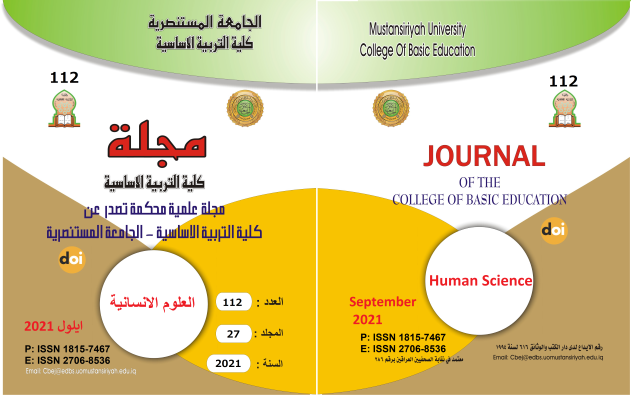Primary education in Iraq and its social and cultural effects on the strength of the state
Main Article Content
Abstract
The educational level of the population, as well as their scientific and technical progress, play an important role in building the political power of the state. The large population is not sufficient to build the power of the state alone, since the scientific and technical expertise of these populations must be provided. Although the population of Iraq is approximately 33 million, illiteracy and underdevelopment are large relative to the population. The primary stage in education has a fundamental role in the educational and scientific advancement of the population. It is an important basis for distinguishing between powerful states with international political weight and weak states Which has no international political weight in international forums, regardless of the size of its population. The educational level of the country's population is measured by some educational indicators, such as the illiteracy rate among the male and female population of different ages, from the proportion of primary school enrollment in basic terms. This is what the researcher will show in his research. The research has been damaged in three terms, as well as the introduction and the summary in both Arabic and English. The first topic: - Geographical distribution of the number of students and schools in Iraq except for Kurdistan for the years (2014-2015) and showing the proportions and intensity of education for the academic years (2016-2017-2018 ). The second topic: - Key indicators of primary government, religious and religious education in Iraq during the period 2010 to 2018. The third topic: - The effects of dropout primary education and high illiteracy rate on the strength of the state.
Article Details

This work is licensed under a Creative Commons Attribution-ShareAlike 4.0 International License.
